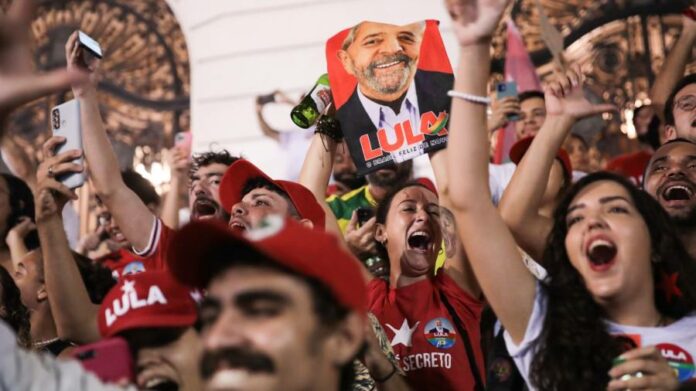Brazil’s presidential election on Sunday offered some hope. One of the world’s biggest democracies voted peacefully after a bitter election campaign and its institutions have held firm against attacks by President Jair Bolsonaro on everything from the voting system to the rules of the game. Former president Luiz Inácio Lula da Silva is now set to govern Latin America’s biggest economy for a third time, but only by a slim margin: the veteran left-winger prevailed by 1.8 percentage points after an unedifying campaign more akin to a street brawl than a political debate.
World leaders were swift to offer congratulations to the victor. President Joe Biden pointedly remarked that Lula’s win followed “free, fair and credible elections”. His message was a timely reminder to Bolsonaro and his hard-right supporters that the US will resist any attempt to question the result.
Bolsonaro himself, a former army captain who served in uniform during Brazil’s dictatorship and has vowed that only God can remove him from the presidency, remained silent for hours after the result was announced. He had not publicly recognised his defeat at the time of writing, but would be extremely ill-advised to do otherwise — blocking a peaceful transition could pose serious risks to stability in one of the top dozen global economies.
Lula pledged in his victory speech to govern for all Brazilians. Doing so will be hard. Though he won international fame for pulling millions out of poverty during his 2003-10 administrations, Lula’s reputation at home was tarnished by corruption scandals and the economic mismanagement of his chosen successor, Dilma Rousseff; many Brazilians backed him this time as the lesser of two evils.
His unwieldy electoral coalition stretched from the left to the centre-right. Its members united to stop Bolsonaro because they believed that he threatened democracy. Now the election is over, the alliance may fracture.
Deep as they are, political divisions are not Brazil’s only problem. Real growth in gross domestic product per capita has averaged zero since 2011. The boom years of the 1960s and 1970s, when Brazil grew at more than 7 per cent a year, are a distant memory.
Much of the explanation has to do with governance. Brazil remains a relatively closed economy and has failed to develop internationally competitive exports outside agribusiness and mining. Despite levying taxes at levels close to the OECD average, much public spending is misdirected into feather-bedding bureaucrats or oiling political machines. Brazil spends more of its GDP on education than France or Germany, yet the quality of public-sector schools is poor. Investment and productivity are low. Congress is in hock to a host of special interest groups.
Today’s fraught geoeconomic climate offers Brazil major opportunities. The country is rich in food, fuel and metals and has a flourishing renewable energy sector. It is located far from global conflict spots and has traditionally sought good relations with the US, China, Europe and Russia.
Lula should act quickly on his pledges to slash Amazon deforestation, which has boomed under Bolsonaro, and make Brazil attractive to ESG investors. He should push for swift ratification of the long-stalled trade deal between the South American Mercosur bloc and the EU. He should name a finance minister with the confidence of market investors and outline a credible plan to finance his campaign promises.
Ultimately, though, Brazil will only flourish if its political and economic elite show the same unity of purpose in modernising the country that they have showed in defending democracy.






